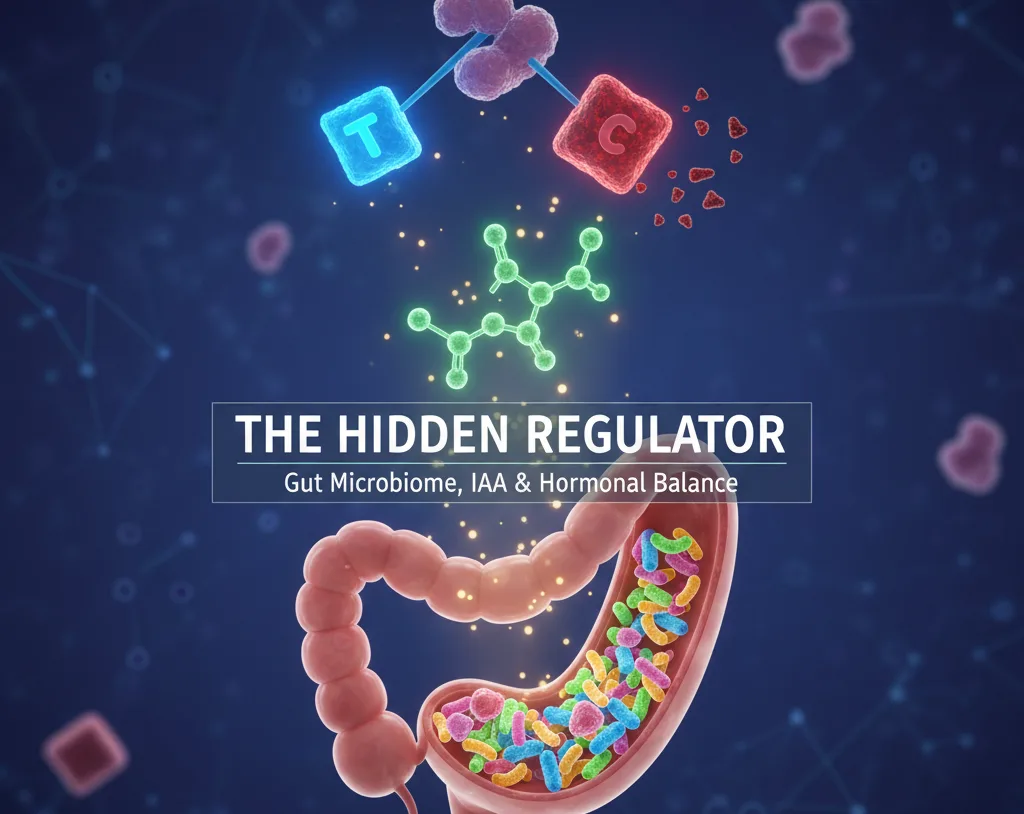In the intricate world of human biology, where countless compounds play vital roles, some operate quietly, almost secretly, yet their impact is profound. One such compound is Indole-3-Acetic Acid (IAA). Far from a mere chemical name, IAA is emerging as a critical link between the health of our gut microbiome and the delicate balance of our endocrine system, particularly concerning stress and sex hormones.
What is IAA?
Indole-3-Acetic Acid (IAA) is an organic compound that serves as the primary auxin (a plant hormone) in plants, regulating their growth and development. However, its significance extends far beyond botany. In humans, IAA is a naturally occurring metabolite primarily produced by the gut microbiome. This highlights the ever-growing understanding of how the vast community of microorganisms residing in our intestines profoundly influences our overall health.
The Gut-Hormone Axis: A Crucial Connection
The concept of a "gut-hormone axis" is gaining traction, describing the bidirectional communication between our digestive system and our endocrine glands. IAA stands as a testament to this connection. Its production by beneficial gut bacteria means that a healthy and diverse microbiome is essential for optimal IAA levels.
Interestingly, certain natural compounds can further enhance this production. The text specifically mentions Astragalus root extract, particularly its APS (Astragalus Polysaccharides). Astragalus is a revered herb in traditional medicine, known for its adaptogenic and immune-modulating properties. The ability of its polysaccharides to boost IAA synthesis underscores the potential of targeted supplementation or dietary choices to influence our internal biochemistry.
IAA's Role in Hormonal Regulation: Battling Stress, Preserving Testosterone
The most compelling aspect of IAA's function in the body lies in its ability to regulate hormones. Specifically, IAA has been identified as a factor that can reduce cortisol, often dubbed the "stress hormone."
Cortisol, while essential for our "fight or flight" response, can become detrimental when chronically elevated due to persistent stress. High cortisol levels are associated with a cascade of negative health effects, including impaired immune function, sleep disturbances, weight gain, and importantly, an imbalance in other hormones.
This is where IAA shines. By helping to temper cortisol levels, IAA plays a protective role in the body's hormonal ecosystem. One significant benefit is its ability to preserve testosterone within the steroid cycles. Testosterone, a crucial sex hormone in both men and women (though in different concentrations), is vital for muscle mass, bone density, energy levels, mood, and libido. Chronic stress and elevated cortisol can suppress testosterone production, leading to fatigue, reduced athletic performance, and decreased well-being. By mitigating cortisol, IAA indirectly supports healthy testosterone levels, thus contributing to overall vitality and hormonal equilibrium.
The "Secret Regulator"
The description of IAA as a "secret regulator" aptly captures its subtle yet powerful influence. It doesn't loudly announce its presence but quietly works behind the scenes, modulating critical hormonal pathways. This highlights the intricate sophistication of our body's internal systems and how seemingly small factors, like metabolites produced by gut bacteria, can have far-reaching effects.
Future Implications and Conclusion
Understanding IAA's role opens new avenues for research and therapeutic strategies. Enhancing gut microbiome health through diet, probiotics, and prebiotics (like those found in Astragalus) could be a viable approach to naturally support hormonal balance, particularly in managing stress and preserving vital hormones like testosterone.
As we continue to unravel the mysteries of the human body, compounds like Indole-3-Acetic Acid remind us that true health often begins at a microscopic level, with the unseen interactions within our gut dictating a symphony of physiological processes that affect our well-being every day.
